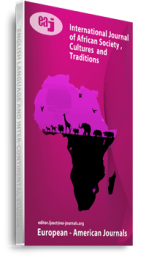The present work deals with the interpretation system of local languages in the Senegalese parliament. In other words, it is devoted to the implementation of the simultaneous interpretation system in the Senegalese Parliament debates. The Senegalese parliament, in cooperation with the European Parliament and the European Union, implemented, some years ago, a system of interpretation devoted to translating (into) six local languages. But what does the interpretation system consist in? What motivates the choice of six local languages and not more or less than six? Why does the Senegalese parliament implement such system in a country whose official language is French? What are the linguistic consequences of this interpretation system on the local and foreign languages spoken in the Senegalese parliament? How is the recruitment of interpreters done? To answer these questions, we have explored the documents and writings related to the implementation of the simultaneous interpretation system in the Senegalese parliament, in particular, and of the interpretation system, in general. Field surveys as well as interviews of some deputies, some interpreters and other people from the administration have also been organized and analyzed in this study. This research has helped us have a lot of information and collect data for the corpus. After the data collection, we have moved on to data analysis and we have ended up with results that we have presented in the body of the text.
Keywords: Implementation, Interpretation, Language, System, local

